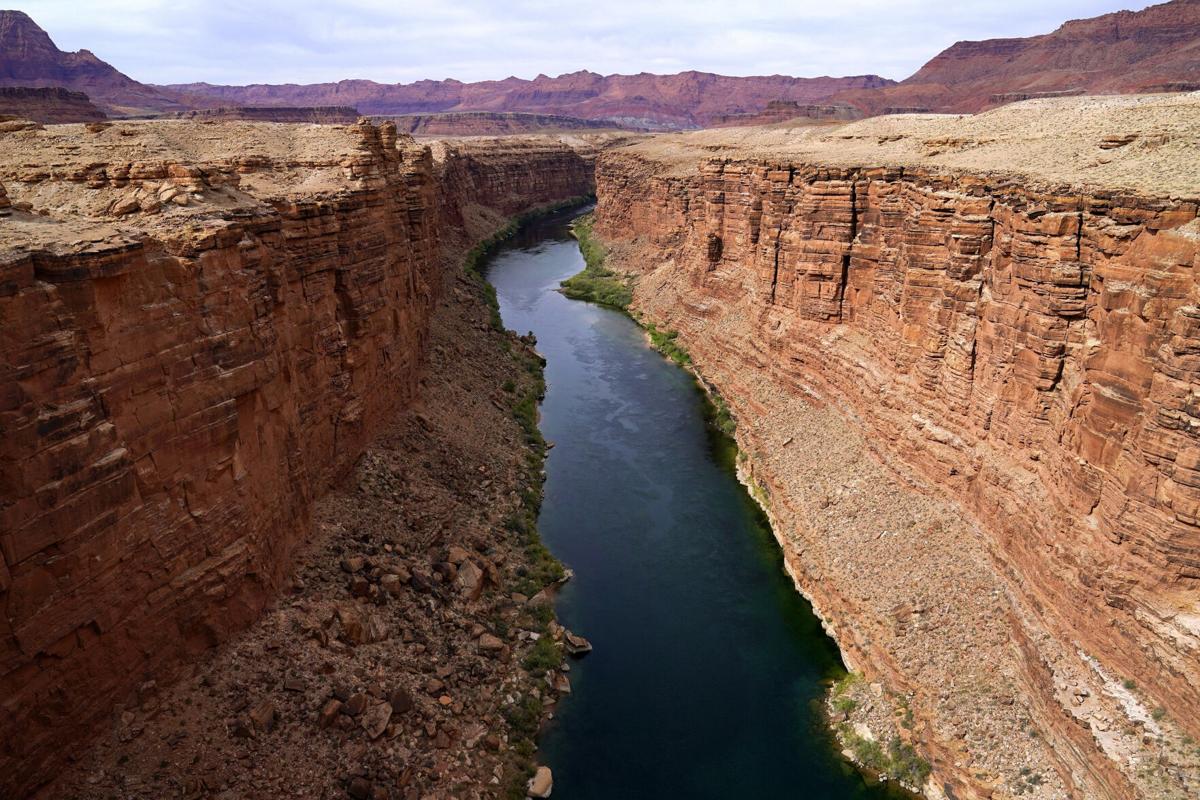The U.S. Supreme Court has sided with Arizona in its bid to keep the federal government from taking actions that could help the Navajo Nation get a larger share of Colorado River water.
In a split decision Thursday, the justices accepted the state’s arguments that the federal government has no legal obligation to help the tribal nation, which spans three states, secure the water it needs. Instead, the majority said if the nation wants help, it needs to go to Congress.
The ruling means Arizona and other states won’t have another player whose interests in Colorado River water must be considered as decisions are made to reduce and reallocate the increasingly limited supply. A contrary decision potentially could have reduced what is available for other Arizona residents.
Crystalyne Curkey, speaker of the Navajo Nation Council, said this isn’t the end of the fight. The tribe negotiated its rights in “good faith” with the federal government, she said.
“Today’s ruling will not deter the Navajo Nation from securing the water that our ancestors sacrificed and fought for — our right to life and the livelihood of future generations,’’ Curkey said in a written statement.
And Justice Neil Gorsuch, writing a dissent for himself and three other justices, chided his colleagues for sending the Navajo Nation packing.
He said all the tribe really wants is for the federal government to identify the water rights it holds for the tribe and, to the extent Washington, D.C. has misappropriated those rights, formulate a plan to stop doing so in the future.
“There is nothing remarkable about any of this,’’ Gorsuch wrote of the tribe’s bid.
Justice Brett Kavanaugh, writing for the majority, said that, at least in this case, any relief for the tribe needs to come not from the courts but from Congress and the president. That explanation did not sit well with Gorsuch.
“To date, their efforts to find out what water rights the United States holds for them have produced an experience familiar to any American who has spent time at the Department of Motor Vehicles,’’ Gorsuch wrote. “The Navajos have waited patiently for someone, anyone, to help them, only to be told (repeatedly) that they have been standing in the wrong line and must try another.’’
He said the lawsuit follows years of writing to federal officials and pursuing other litigation, all to be told to “try again.’’
“When this routine first began in earnest, Elvis was still making his rounds on The Ed Sullivan Show,’’ Gorsuch wrote.
Central to the question is the 1868 treaty in which the Navajos agreed not to engage in further war with the United States.
In exchange, the federal government established the reservation of more than 17 million acres on the tribe’s original homeland. Kavanaugh said that treaty includes the land, minerals and timber on the land as well as “the right to use needed water on the reservation.’’
That was complicated by seven Colorado River basin states’ decision in 1922 to divide up the river water.
The tribe sought a ruling that, if successful, would require the U.S. Interior Department to consider potential impacts on the nation’s water rights as it makes future decisions about the river.
In filing suit, the tribe sought an order compelling federal agencies “to determine the water required to meet the needs’’ of the Navajos in Arizona and to “devise a plan to meet those needs.’’ They cited the 1868 treaty.
Arizona intervened in the lawsuit, as did Nevada and Colorado, to protect their own interests in water from the Colorado River.
Gorsuch said the 1868 treaty does make various promises, including requiring the federal government to build a school, a chapel, a carpenter shop and a blacksmith shop. Other provisions mandated the United States provide teachers for Navajos’ schools for at least 10 years and provide articles of clothing or other goods to the Navajos.
“But the treaty said nothing about any affirmative duty for the United States to secure water,’’ Gorsuch wrote. He said that would be like saying the treaty required the federal government to farm the land, mine the minerals or harvest the timber.
Said Kavanaugh: “It is not surprising that a treaty ratified in 1868 did not envision and provide for all of the Navajos’ current water needs 155 years later in 2023.”
He acknowledged the historic drought also has affected the tribe.
“So even though the Navajo Nation encompasses numerous water sources and the tribe has the right to use needed water from those sources, the Navajos face the same water scarcity problem that many in the western United States face,’’ Kavanaugh wrote.
He said, though, the remedy to the tribe’s water issues lies elsewhere.
“Congress and the president may update the law to meet modern policy priorities and needs,’’ Kavanaugh said. “But it is not the judiciary’s role to update the law.’’
He said that’s particularly important in cases like this.
“Allocating water in the arid regions of the American West is often a zero-sum situation,’’ Kavanaugh said.
“And the zero-sum reality of water in the West underscores that courts must stay in their proper constitutional lane and interpret the law (here, the treaty) according to its text and history, leaving to Congress and the president the responsibility to enact appropriations and otherwise update federal law as they see fit in light of the competing contemporary needs for water,’’ he wrote.
Longtime Arizona Daily Star reporter Tony Davis talks about the Colorado River system being "on the edge of collapse" and what it could mean for Arizona.





